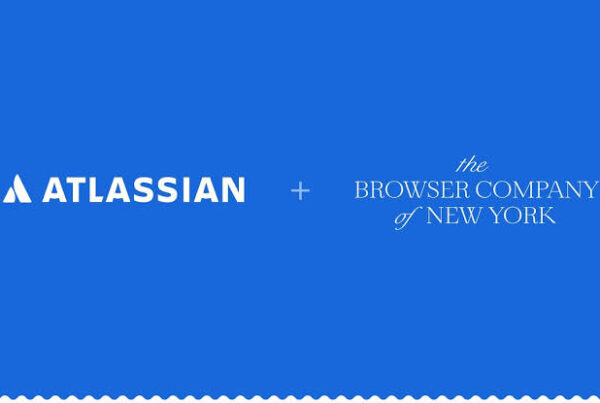Signal AI, a UK-based media intelligence company, has announced a major milestone after securing USD 165 million in fresh funding. The investment round was led by Battery Ventures with participation from several major backers. The capital injection will be used to expand product reach, strengthen presence in the United States and Europe, and support strategic acquisitions. Yet behind this success lies a growing debate over privacy and ethics in large-scale media and social monitoring, the very foundation of Signal AI’s services.
The company is widely recognized for its ability to process billions of news items and public social media posts across more than two hundred international markets. By leveraging AI-driven technologies, Signal AI enables multinational corporations, government bodies, and global organizations to detect reputational issues, legal risks, and emerging trends. For businesses operating in complex global landscapes, such services are often considered indispensable. However, mass data collection inevitably sparks questions, especially around the legality of scraping, compliance with GDPR in Europe, and the protection of individual rights.
Signal AI and the Leap in Funding
This latest round of funding underscores the significant momentum in AI-powered media intelligence. Investors increasingly view platforms like Signal AI as not only relevant but essential in an age dominated by information overload. Companies can no longer rely solely on manual clipping services or traditional analysis teams; they require automated systems capable of delivering early warnings about reputational crises or regulatory risks.
In addition, such a large investment highlights ongoing consolidation within the sector. What was once dominated by legacy monitoring vendors is now being reshaped by new entrants with strong technological capabilities. Signal AI positions itself as a pure AI-driven provider capable of predictive insights rather than retrospective reports. This framing demonstrates its ambition to surpass competitors by offering faster, more efficient, real-time intelligence.
However, this aggressive growth strategy brings significant responsibilities. The larger the scale of data processed, the greater the scrutiny over privacy practices. Key questions emerge: how can companies like Signal AI ensure legal and ethical compliance while operating across jurisdictions governed by very different privacy regimes?
Risks and Opportunities in Global Expansion
Expanding into American and European markets offers major opportunities, yet it also increases exposure to regulatory complexity. In the European Union, for example, GDPR imposes strict standards on data processing. Meanwhile in the United States, although regulations are more fragmented, consumer privacy demands are intensifying. With fresh capital, Signal AI must carefully balance its ambitions for global growth with rigorous adherence to local laws.
Privacy Challenges in Media Monitoring
Privacy remains at the center of debates surrounding media intelligence. While much of the monitored data originates from publicly available sources such as news articles or accessible social media posts, its use is not always straightforward.
Public Data Does Not Mean Free Data
On one hand, companies argue that the data collected is already in the public domain. On the other, regulators emphasize that public availability does not strip information of its legal status as personal data. Names, locations, and even opinions on social media may still qualify as personal data if they can identify an individual. This means organizations must still comply with GDPR principles such as minimization, purpose limitation, and transparency.
The challenge grows when such data is used to train AI models. Can data collected for reputation monitoring be repurposed for predictive algorithm training? Many legal experts argue that this requires a separate legal basis and additional transparency measures. Without it, companies risk non-compliance.
The Clearview AI Case as a Warning
A notable precedent is the global controversy surrounding Clearview AI, a facial recognition firm. Clearview harvested images from social media without consent, creating a massive biometric database. Regulators across Europe and elsewhere deemed this a violation of privacy law, imposing heavy fines and ordering data deletion. The case underscores a crucial principle: “public data” remains subject to data protection, especially when it involves sensitive categories like biometrics.
Signal AI’s business may differ focused more on text, news, and discourse than biometric data—but the principle remains. Companies must demonstrate a lawful basis for data processing and robust protections for individuals’ rights.
Regulatory Implications and Compliance Strategies
Beyond reputational risks, failure to address privacy can carry massive financial consequences. Under GDPR, fines can reach up to 4% of global annual revenue, a potentially existential threat for any fast-scaling company. Compliance strategies must therefore remain central to expansion plans.
Balancing Innovation and Regulation
Businesses must carefully navigate between technological innovation and regulatory compliance. Innovation is essential to deliver real-time insights to clients. Yet it cannot come at the expense of legality, data security, and individual rights. Companies that achieve this balance will enjoy a competitive edge, offering services that are both effective and ethical.
Individual Rights and Transparency
GDPR guarantees individuals the right to access, correct, or request deletion of their data—even if that data is publicly accessible. As a result, companies like Signal AI must provide mechanisms for individuals to exercise these rights. In addition, transparency is essential: businesses must disclose data sources, processing purposes, and retention timelines to build public trust.
The Future of Media Intelligence and Privacy
Signal AI’s record funding signals the growing importance of AI-driven media intelligence in global business strategy. Corporations, governments, and international bodies increasingly rely on such tools to understand public sentiment and anticipate risks. Yet the future of this industry will be defined as much by how companies handle privacy as by their technological sophistication.
A failure to uphold privacy and ethical standards risks regulatory backlash, public distrust, and heavy fines. Conversely, those who lead with strong data governance frameworks will not only dominate the market but also help establish new norms for ethical use of public data.
Signal AI’s funding marks the beginning of a new chapter in media intelligence. Yet long-term success will hinge not only on scaling operations but also on balancing business ambition with privacy obligations. How the company navigates this fine line will remain a defining question in the years to come. For more in-depth analysis on global technology trends and privacy issues, continue reading the latest coverage on Olam News.






